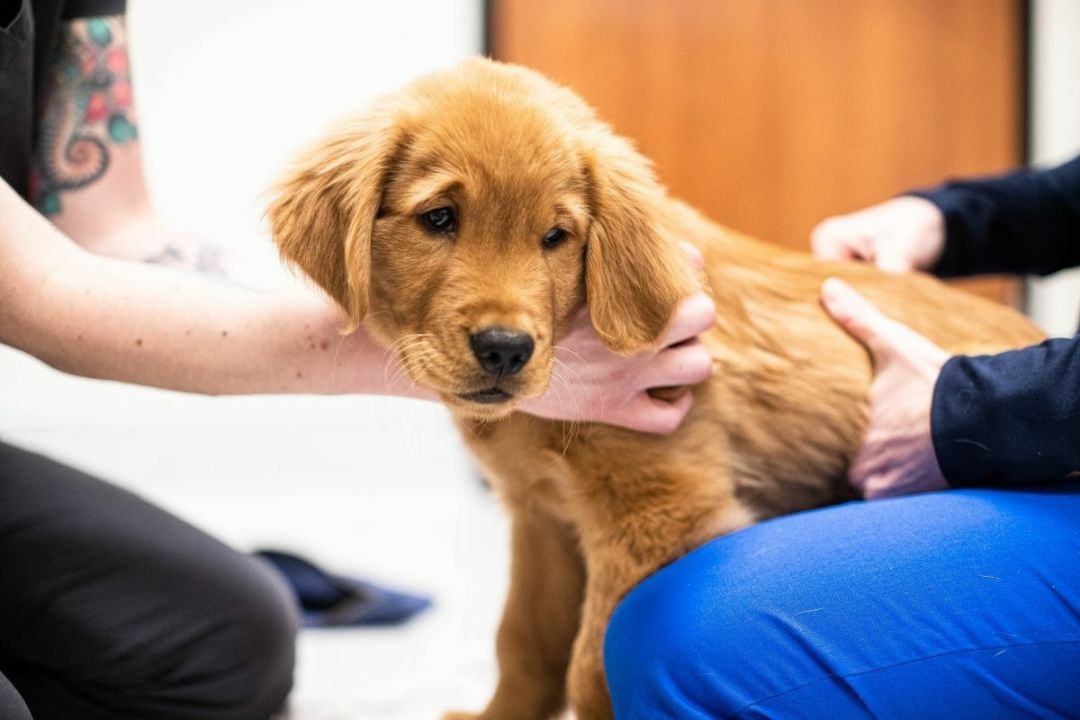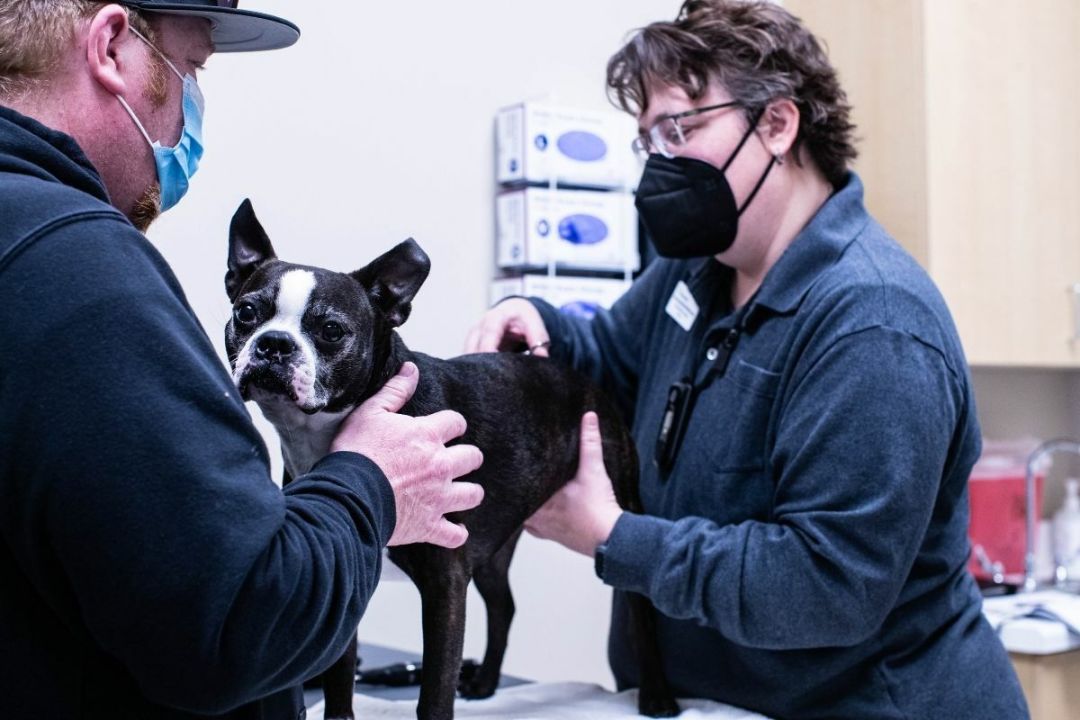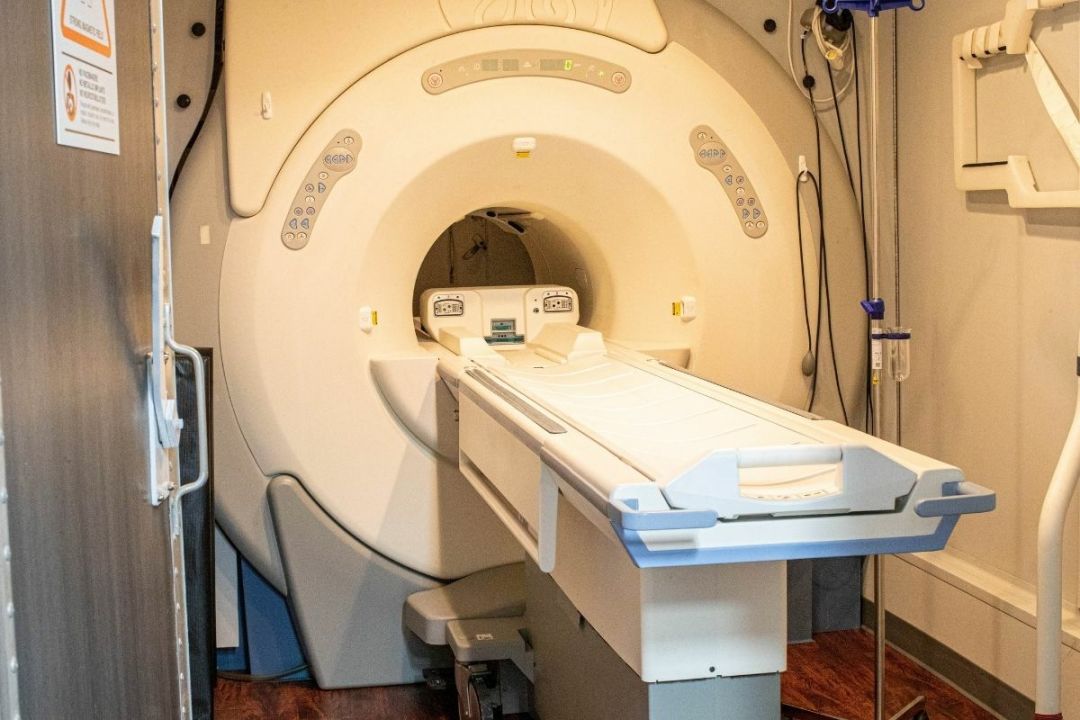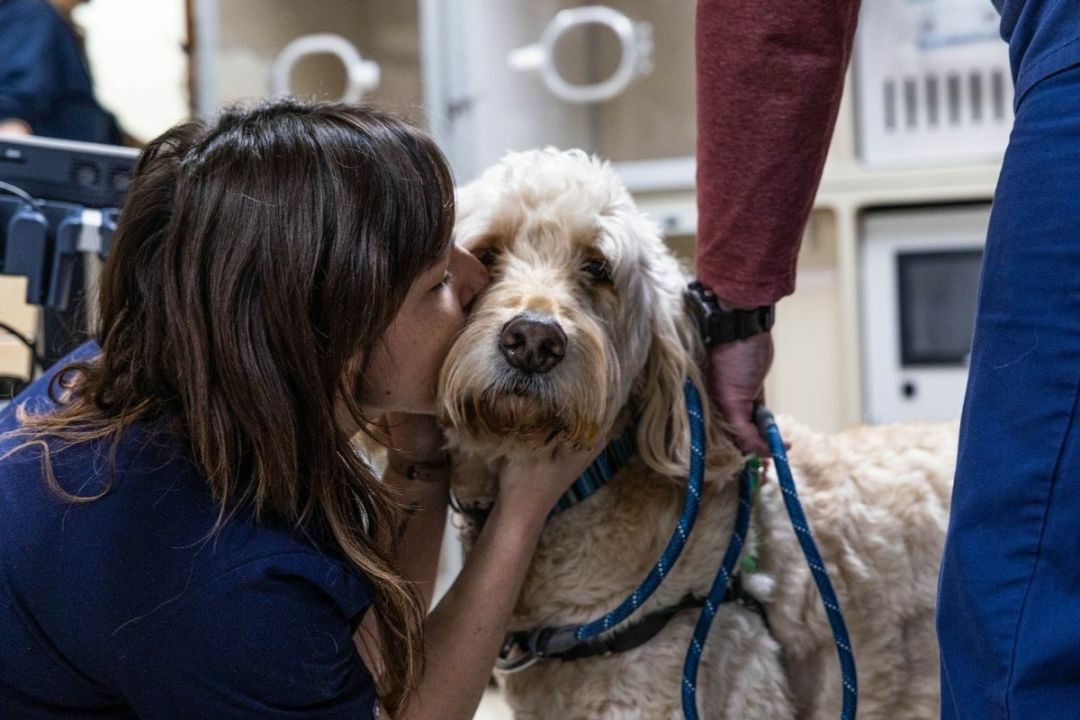Four Signs Your Pet May Need Neurological Care

Golden Retriever puppy Gingko receives an exam from the DoveLewis neurology team.
Recognizing when your pet is injured or feeling sick is typically straightforward. But there are some health issues where the symptoms can be more puzzling, like in the case of behavior changes. One possible cause of these changes is neurological dysfunction.
Your pet may need a neurologist if they have a condition or injury that impacts their brain, spine, nerves, or muscles. Some animals need the help of a neurologist when they've experienced trauma—a car accident or terrible fall, for instance. Other patients seek care because they have chronic issues that require specialized support, like epilepsy.

Boston Terrier Mya meets board-certified neurologist Tracy Prouty DVM, DACVIM at DoveLewis.
Read on to discover a few of the signs that indicate neurological dysfunction.
- Head pressing - When a pet compulsively leans their head against the wall for a prolonged period, it's called head pressing. This behavior is a common signal that something is awry within their nervous system. Injury, degenerative disease, infections, and poisoning can all cause head pressing.
- Stumbling, coordination, or balance issues - Unusual stumbling, repeatedly falling over, or unusual walking can be alarming to witness in your pet. Seeing them struggle to keep their balance or change their gait could also be a sign that they have neurological dysfunction.
- Seizures - During a seizure, symptoms can range from the less noticeable, like shaking or lip licking, to the more classic signs like collapse and stiffening, twitching, drooling, chomping, and involuntary urination and defecation. While one brief (less than one minute) seizure is not always cause for alarm, a prolonged episode (more than three minutes) or multiple seizures may indicate nervous system injury or disease. It's always a good idea to notify your primary care veterinarian if your pet has a seizure for the first time.
- Circling - Pets sometimes circle when they settle into their bed or play. Still, if you notice your pet repeatedly circling in the same direction for no reason, it could indicate an underlying neurologic issue. Brain tumors, stroke, and brain inflammation can all cause circling.
If your pet is experiencing any of these behaviors, you'll likely want to speak with your primary care veterinarian. They'll be able to assess the situation holistically in the context of their medical history. Together with your veterinarian, you may decide that your pet needs more targeted treatment with the help of a specialist who has extensive training in neurology.

DoveLewis is home to a state-of-the-art 1.5 Tesla MRI and a 64-slice CT, which provides in-depth imagery for their neurology team to diagnose and treat patients.
Specialized diagnostic imagery like computerized tomography (CT) and magnetic resonance imaging (MRI) may only be available via a neurologist and can help diagnose issues like tumors.
It can be unsettling to see your pet experiencing signs of neurological changes. DoveLewis now offers neurology services at their hospital in Northwest Portland. Their board-certified neurologists specialize in seizures, spinal injuries, traumatic brain injuries, balance issues, nerve and muscle issues, and chronic pain. When you book a consultation, they'll work with you to determine the best treatment plan for your pet.

Frank the Goldendoodle receives love from a neurology technician during his visit.
Visit their site to meet board-certified neurologists Sophie Petersen, Ph.D., DVM, DACVIM, and Tracy Prouty, DVM, DACVIM, and learn more about how neurology support can help your pet live a healthier life.
